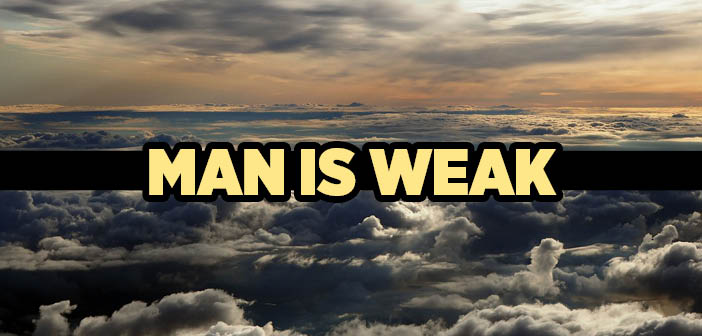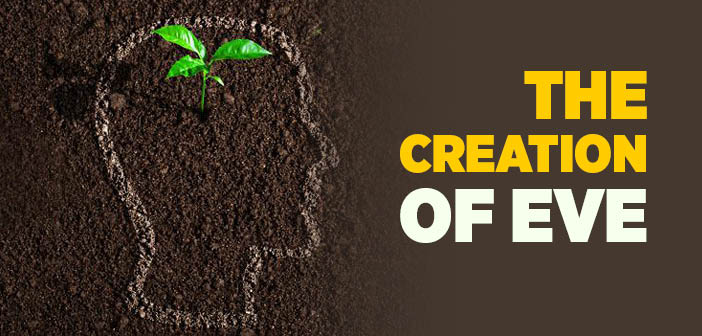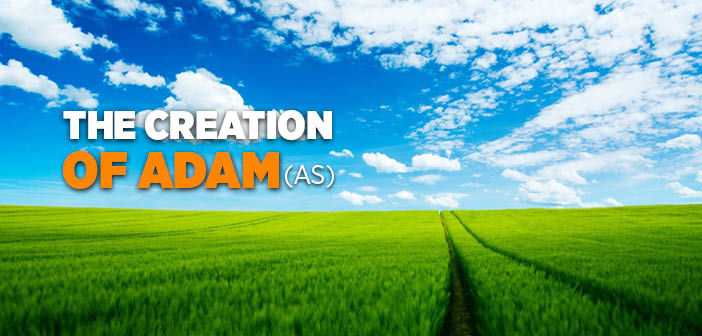Is man weak in islam?
Animals have been given the power to adjust themselves to their surroundings and live by themselves shortly after they are born. Yet, human beings have not. As babies, they are weak and vulnerable; and need years of care before they can set out into the world on their own. The Qur’an states:
“Allah is the one who created you from weakness, then gave you strength after weakness, and then gave you weakness after strength and white hair. He creates what He wills, and He is the Knowing, the Competent.” (Al-Rum, 30: 54)
But man should not count on the strength that comes with his youth to rebel against Allah; for he will eventually age and return to a period of weakness and exhaustion. The regrets felt at old age will not turn back the clock to bring back lost opportunities and appease the longing and pain felt deep in the soul. The Qur’an paints an evocative picture:
“And he to whom We grant long life We reverse in creation; so will they not understand?” (Ya Sin, 36: 68)
If human beings are weak physically, they are even weaker psychologically. The below verse points to both:
“And man was created weak.” (Al-Nisa, 4: 28)
Through the example of Adam (as), the Almighty further alludes to how human beings lack willpower and determination, and are generally forgetful:
“And We had already taken a promise from Adam before, but he forgot; and We did not find him to be determined.” (Ta Ha, 20: 115)
It is said that insan, which is the Arabic term for human, comes from two words. First is nisyan, or forgetfulness. As the above verse reminds us, Adam (as) had forgotten the word he had given Allah. The other is unsiyyah, which means habituation, whereby man quickly acclimatizes to whatever surrounding he finds himself in. He, in time, takes a liking to it and virtually assumes its color.
We have no reason to be conceited, when the Qur’an frequently reminds us how weak and helpless we are. Allah has created man not from a precious drop of tear but a drop of sperm. That is what we ultimately are. It is therefore upon us to realize that we are nothing compared to the might of Allah. We have been warned:
“And do not walk upon the earth exultantly. Indeed, you will never tear the earth apart, and you will never reach the mountains in height.” (Al-Isra, 17: 37)
Man is naturally predisposed to serve. He therefore has two possibilities in front of him: he can either serve his ego or God. To become a worthy servant of God, he must first overcome the ego. He has to do so in order to be true to the oath he made to the Lord that, as a spirit, he would recognize and serve Him on earth.
When the spirit gave this oath, everything was clear. He could see the angels and gaze at divine majesty. However, as the Prophet (saw) tells us, once this spirit was breathed into the womb on the embryo’s 120th day, it became enslaved by the five senses and detained inside the ego. It lost its lightness and finesse, and became clouded and heavy, veiled away from the truth. However, it has been shown a way to break through this cloud. Refining the five senses by cleansing the ego in the manner Allah (jj) has taught and through the innate capabilities it has been given, the spirit can tear this veil right open. Nevertheless, giving direction to the five senses is possible only through cleansing the heart and purifying the soul. At the end of it, the thick cloud evaporates and the heart becomes open to receive the truths.
“And when I have proportioned him and breathed into him of My spirit” (Al-Hijr, 29) This spirit breathed into man is from a world beyond the sensible. It is immortal. It has entered a body that is part of the sensible world and therefore mortal. It needs to be released. Rumi offers the following parables to draw attention to the need to save the spirit from drowning in the body and enabling it to take control:
“The spirit inside the body is hidden and invisible, like oil in yoghurt. You need to give the yoghurt a shake for the oil to appear. And for the spirit to take control of the body, the body needs to be deprived and put through some toil.”
For the heart to rid itself of base desires for the world and retain that sensitivity, it needs to be filled with divine emotions. It is otherwise impossible to gain that wisdom referred to as marifah. Above all, one must ask Allah for it, as Necip Fazil underlines in the below poem:
Lord, I have weight,
Lightness is your trait
Have mercy on me.
From these ripples of grease
Give me sweet release
Have mercy on me.
I’m crushed under clothes
Of flesh and bones
Have mercy on me.
In the Qur’an, Allah (jj) says:
“He has certainly succeeded who purifies himself. And mentions the name of his Lord and prays.” (Al-Ala, 87: 14-15)
“By the sun and its brightness. And by the moon when it follows it. And by the day when it displays it. And by the night when it covers it. And by the sky and He who constructed it. And by the earth and He who spread it. And by the soul and He who proportioned it. And inspired it [with discernment of] its wickedness and its righteousness. He has succeeded who purifies it. And he has failed who corrupts it.” (Al-Shams, 91: 1-10)
Islam aims to raise elegant, sensitive and profound human beings to serve Allah in the truest sense. This maturity finds only those who reach a certain depth of feeling and understanding. These people have perfected their faith and are described by Allah (jj) as:
“The believers are only those who, when Allah is mentioned, their hearts become fearful, and when His verses are recited to them, it increases them in faith; and upon their Lord they rely.” (Al-Anfal, 8: 2)
“Who, when Allah is mentioned, their hearts are fearful, and to the patient over what has afflicted them, and the establishers of prayer and those who spend from what We have provided them.” (Al-Hajj, 22: 35)
Once a heart is filled with divine love, every action becomes ultimately directed towards winning divine pleasure. That is when man begins to set out on a journey to understand the wisdom behind his creation and the truths of the universe as well as the Qur’an. As for ignorant and ill hearts that are unable to acquire this finesse and depth, they are at a remove from the love of Allah (jj). As the Qur’an says:
“Then woe to those whose hearts are hardened against the remembrance of Allah. Those are in manifest error.” (Al-Zumar, 39: 22)
At the same time, the verse alludes to how hearts that become distant from remembering Allah (jj) lose their humane quality.
The ego wants to revel in every single pleasure on earth. Yet, this appetite can be tamed and the ego restrained through spiritual purification. Without it, a person becomes a total slave to the ego and its relentless desires. The Qur’an states:
“Have you seen the one who takes as his god his own desire? Then would you be responsible for him?” (Al-Furqan, 25: 43)
It is striking that the Qur’an says these people take their desires as their god. The Qur’an always uses the word desire (hawa) as the opposite of knowledge, which is based on revelation:
“So if you were to follow their desires after what has come to you of knowledge, indeed, you would then be among the wrongdoers.” (Al-Baqarah, 2: 145)
The Qur’an tells us that following one’s desires is the most important cause of deception. People who especially choose to listen their desires in religious matters stray from the path that leads to Allah.
To properly purify the ego, one needs to commit himself to methods of spiritual training, which include self-restraint (riyazah), remembering Allah (dhikr) and attending spiritual circles (sohbah). We all know that faith takes place in the heart. However, the heart is also the center of speech. Therefore, true servanthood begins when the name Allah said by the tongue also finds expression inside the heart. That is what makes the ego erode. By continuing dhikr, the truth of the spoken word begins to encompass a person’s whole being. Everything, apart from Allah, becomes erased from the heart. The person slowly begins to enter Allah’s presence and acquires the state of ihsan, or sincerity before the Almighty. He worships Allah as if he sees Him.
Source: The History of Prophets in Light of The Qur’an, THE CHAIN OF PROPHETS, Osman Nuri TOPBAŞ, Erkam Publications





